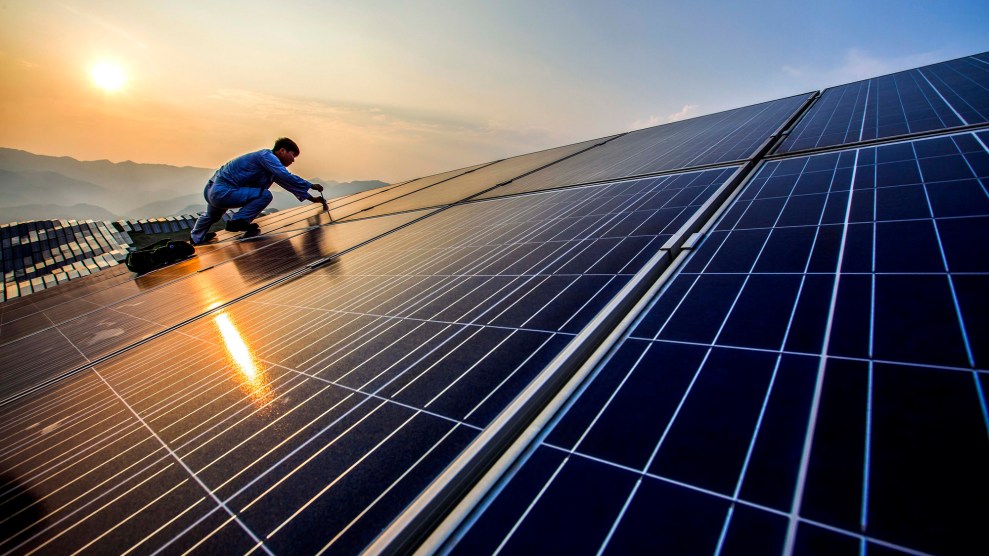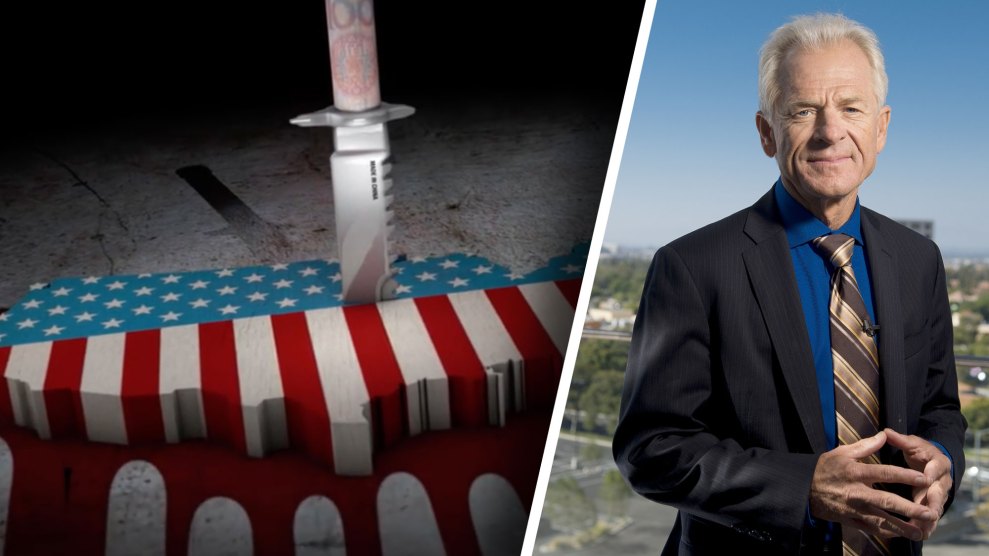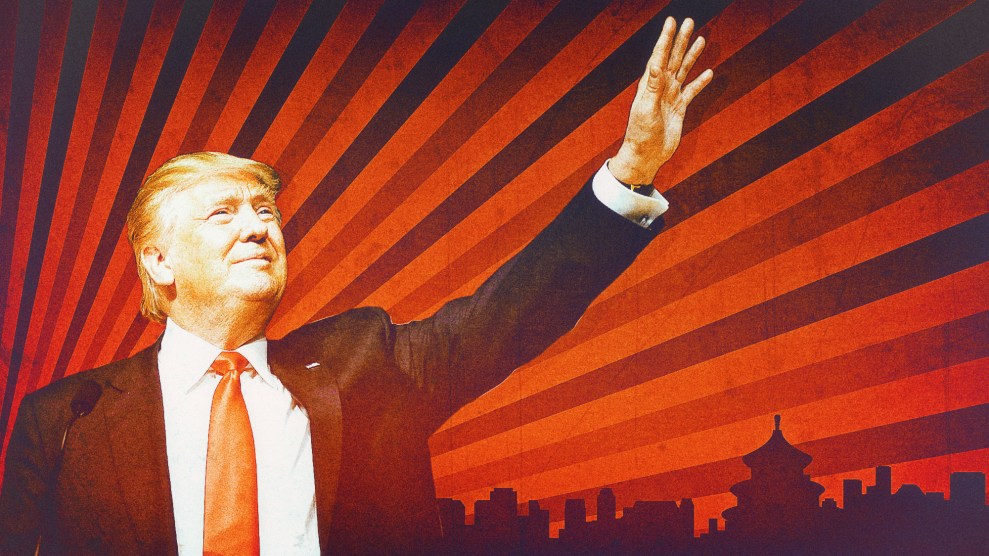
Photo-illustration by Mother Jones
President Donald Trump paints China as the United States’ ultimate economic enemy, imperiling American jobs by engaging in unfair trade practices. “We can’t continue to allow China to rape our country, and that’s what they’re doing,” Trump said last year in Fort Wayne, Indiana. “They are devaluing their currency, and we have nobody in our government to fight them,” he added at a debate in September. “They are using our country as a piggy bank to rebuild China, and many other countries are doing the same thing.”
Trump’s appointments have been predictably hawkish on China. Economist Peter Navarro, who will serve in a newly created White House trade position, is an anti-China activist who might be put in charge of spearheading efforts to slap a massive tariff on Chinese imports. Trump has also threatened to label China a “currency manipulator,” a largely symbolic move that would nonetheless infuriate China’s leaders and could spark trade retaliations. In his 2011 book Time to Get Tough, Trump labeled China’s leaders “enemies” and wrote, “We shouldn’t entertain Communists and beg for a few tiny contracts.” What else, he asked, “do you call the people who are destroying your children and grandchildren’s future…who are ruining our way of life?”
But when it comes to his own business deals, Trump’s actions don’t exactly align with his hawkish rhetoric. In the past, he has tried repeatedly to land big real estate deals in China with state-run Chinese companies as partners. He’s sought access to China’s famously tricky business markets—even for his reality TV show, The Apprentice.
Trump still owes potentially hundreds of millions in debt to one massive, state-run Chinese bank, while leasing a floor of Trump Tower office space in Manhattan to another—a contract that’s up for renegotiation in October 2019. Trump’s hotel company planned dozens of new facilities in China over the coming years, but those projects appear to have been scrapped following the election.
Here are the highlights—and lowlights—of Trump’s business record with China, America’s biggest trading partner.
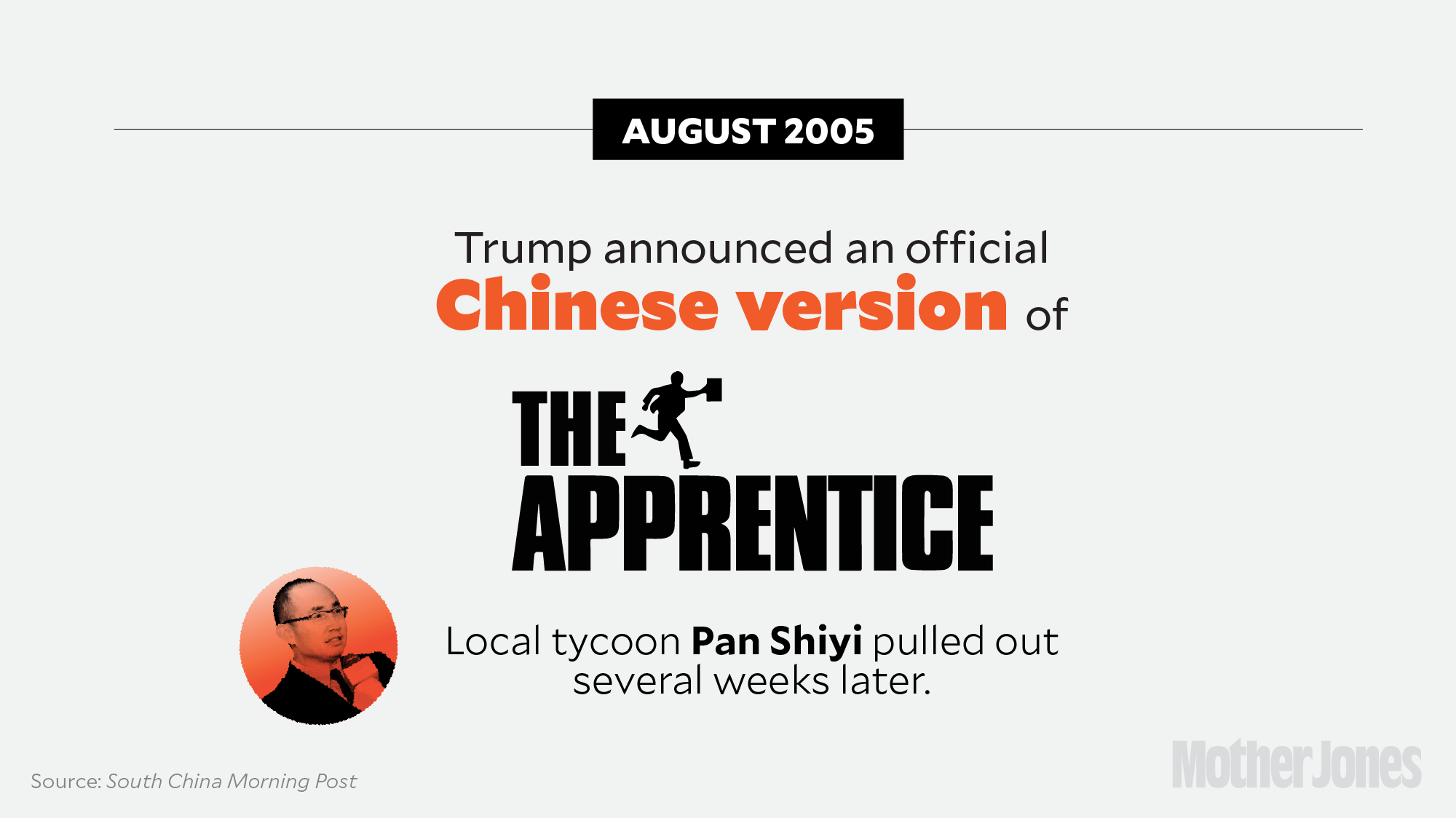
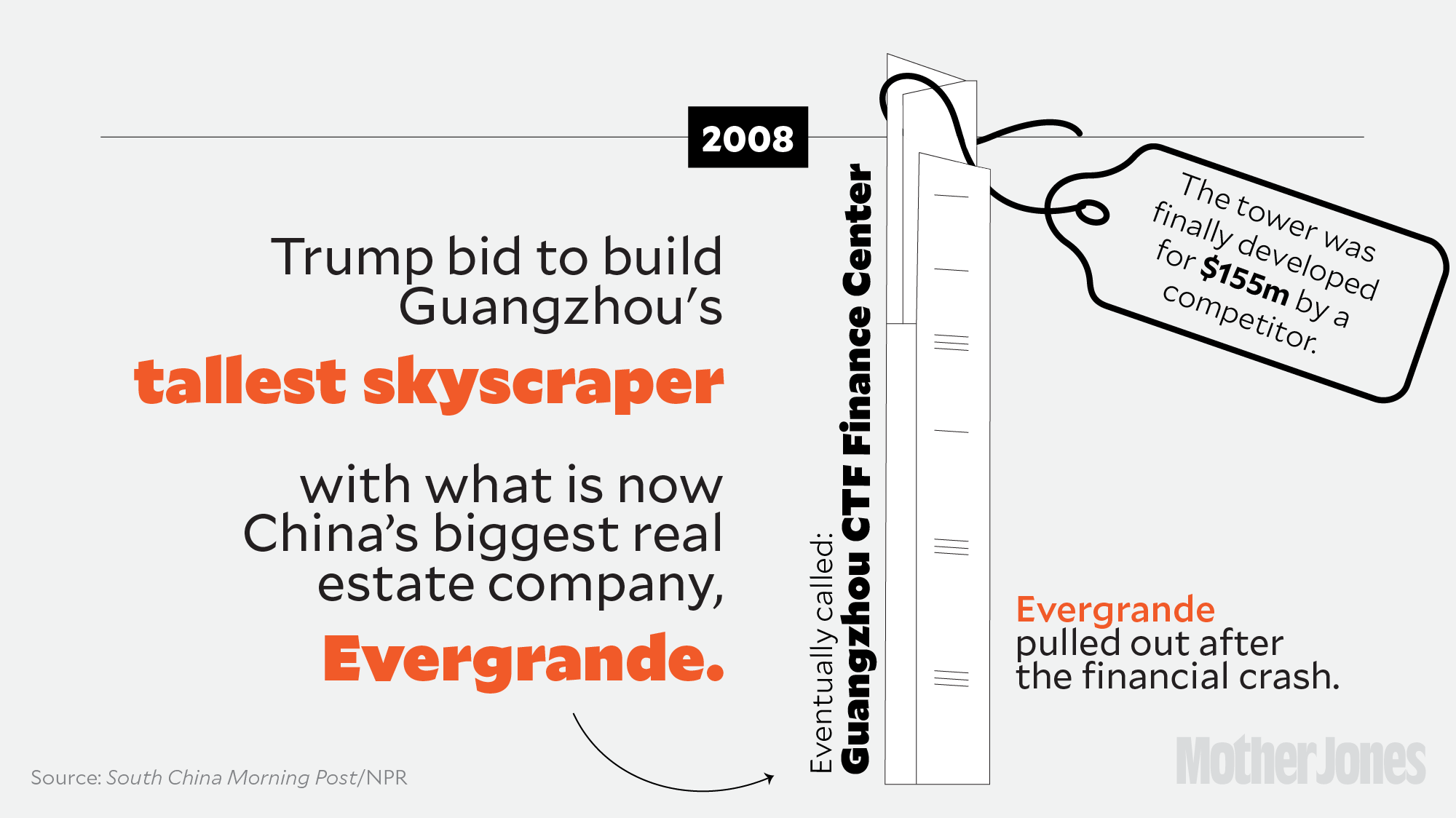
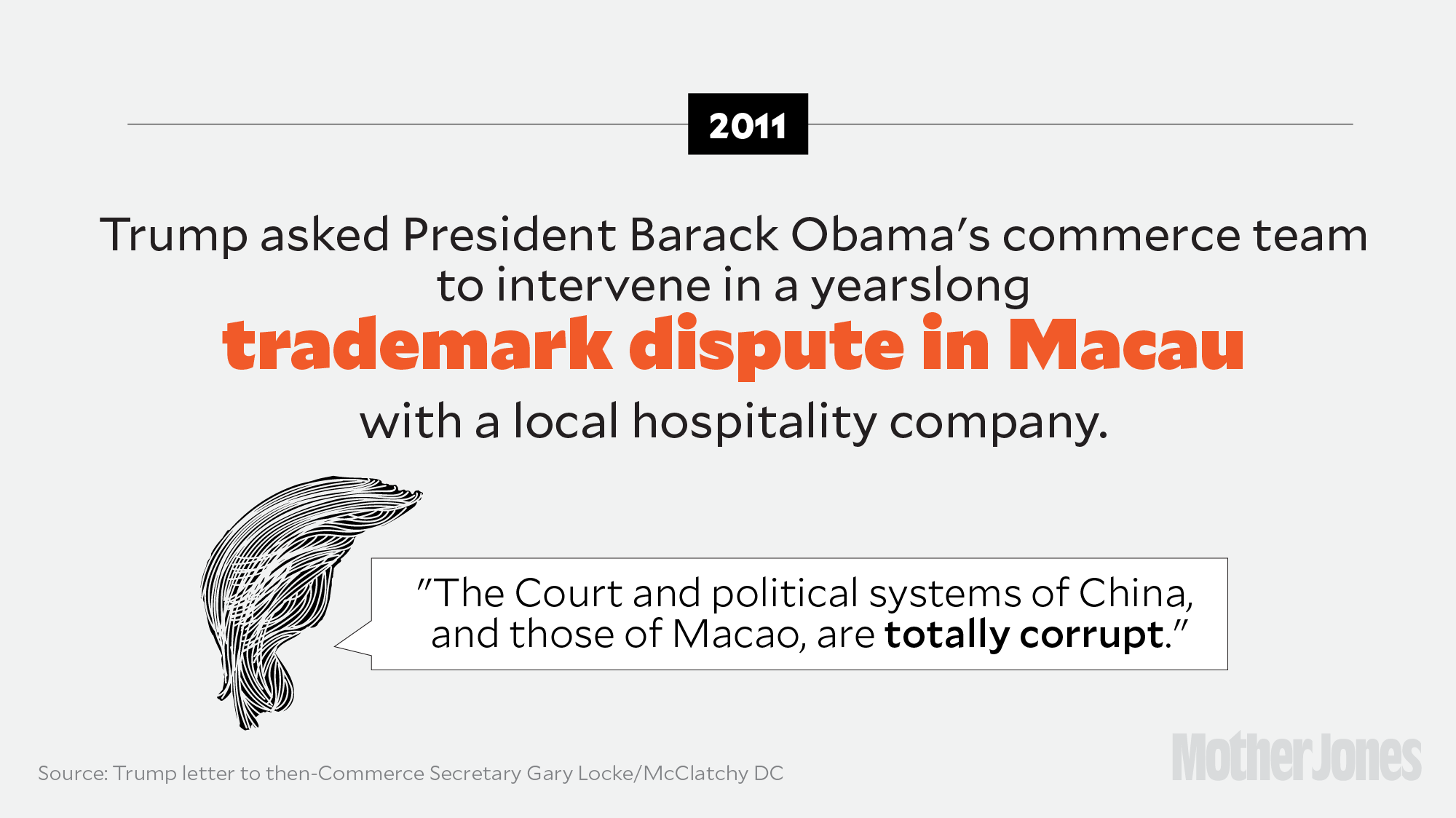
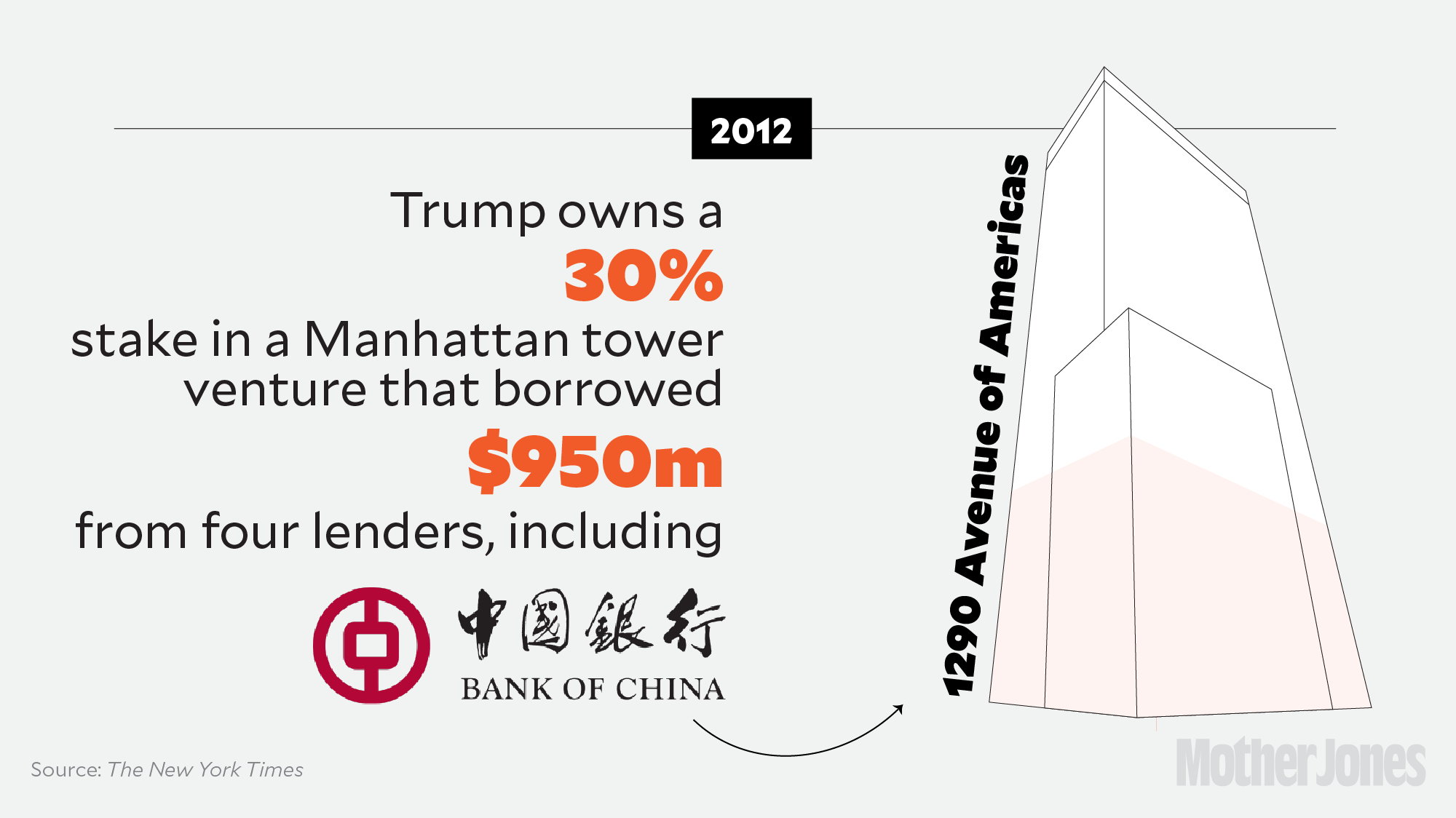
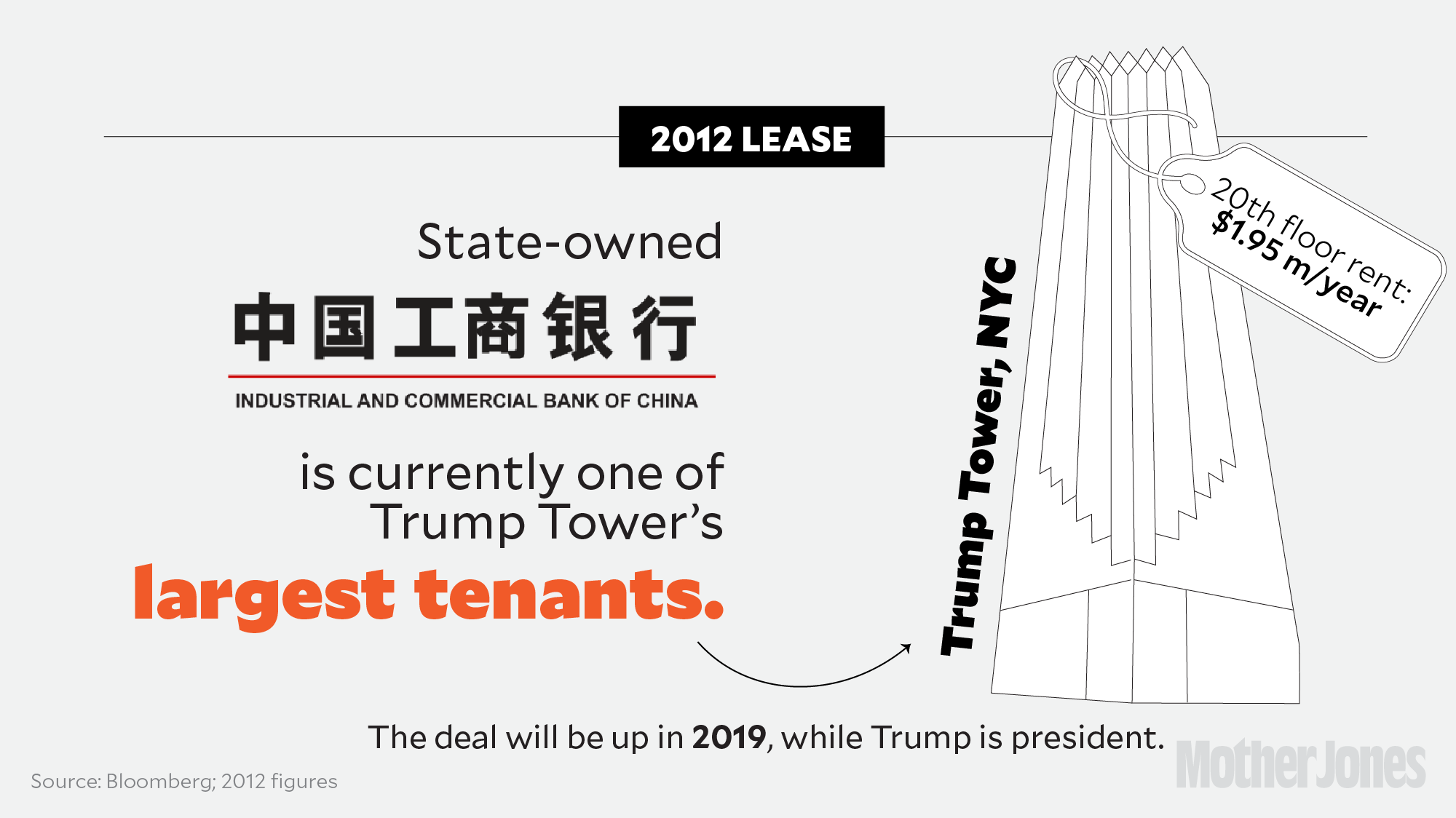
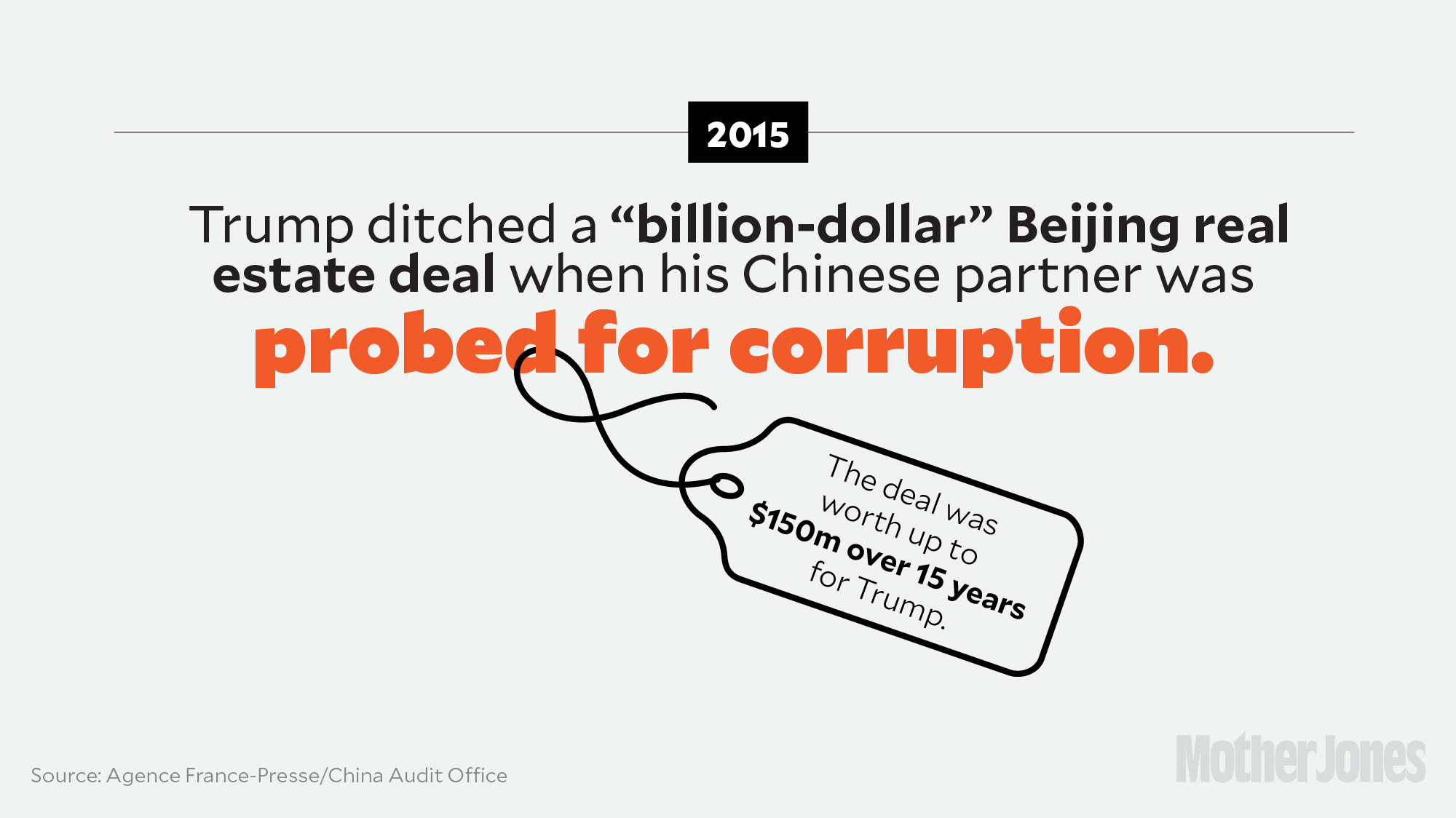
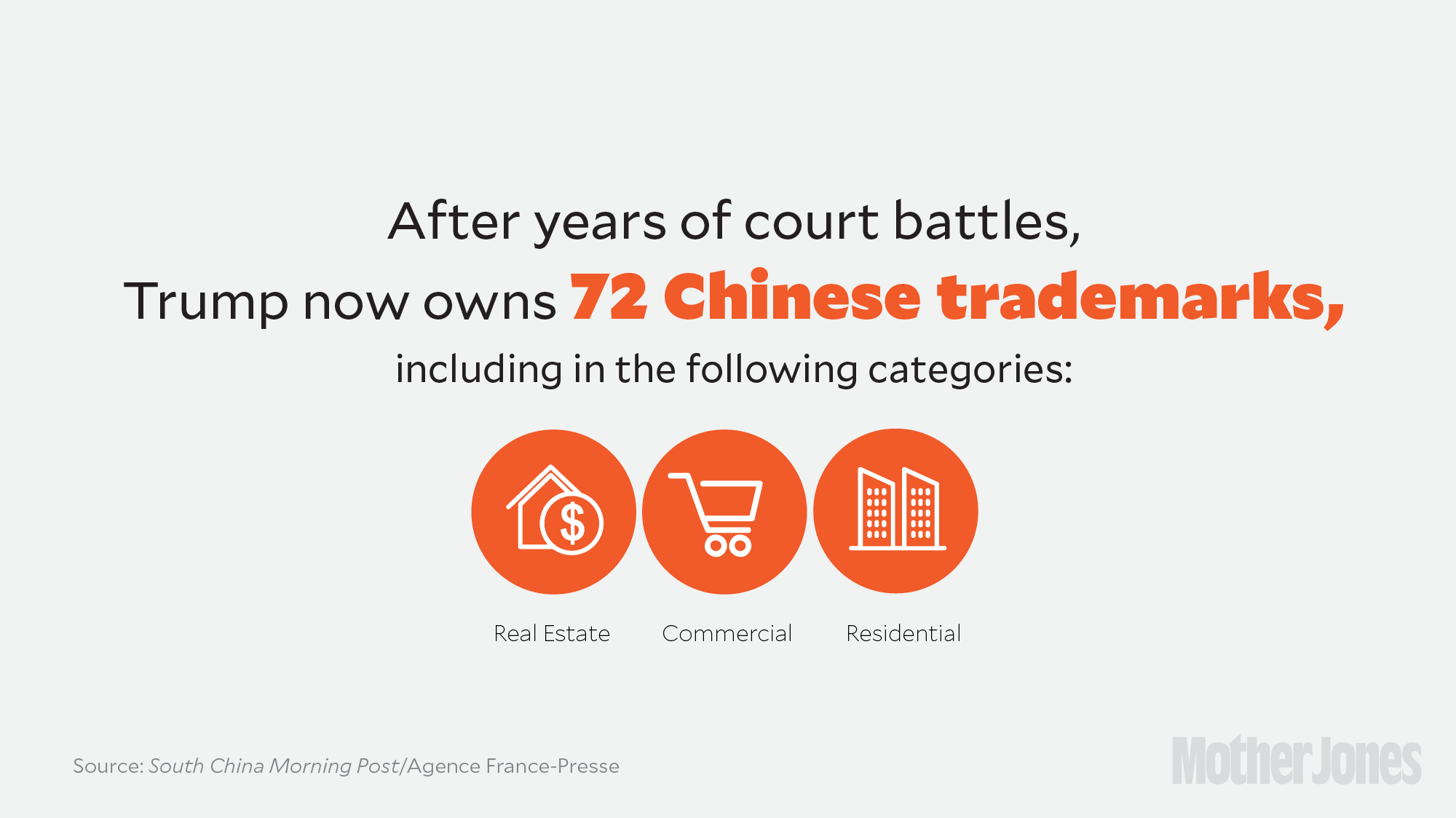
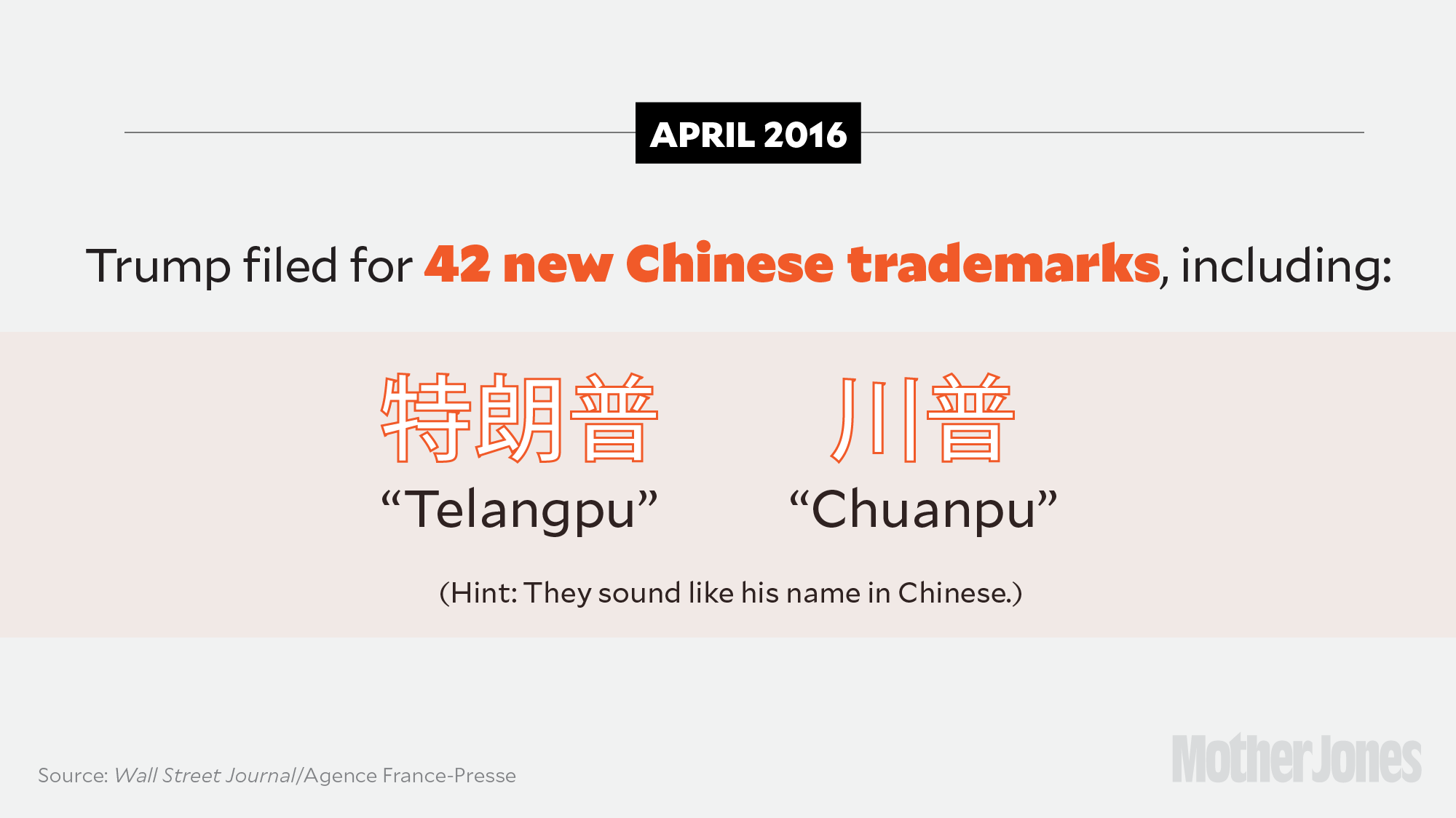
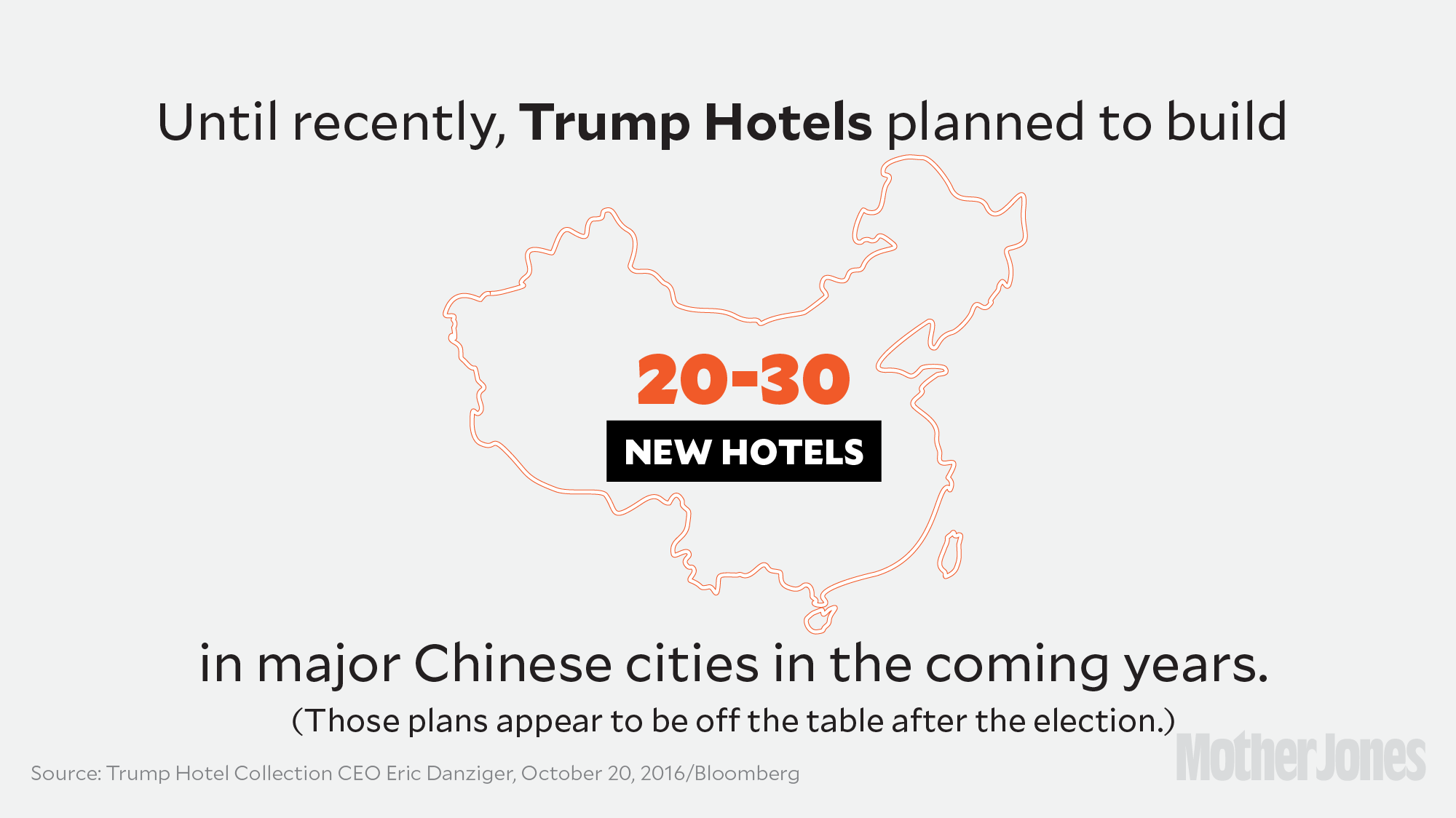
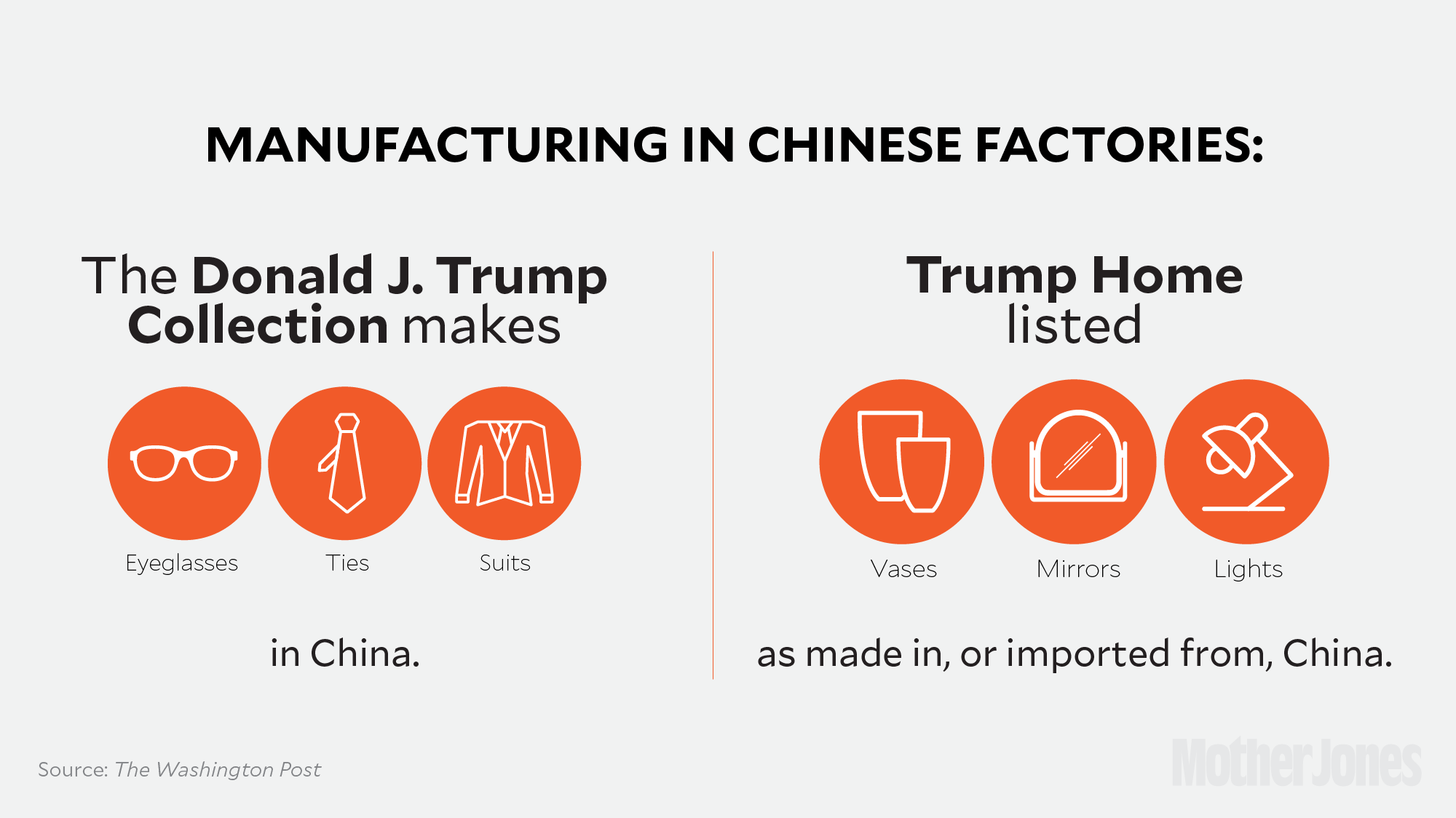
Image credits: Trump: Charlie Neibergall/AP Photo; Photo-illustration by James West.

